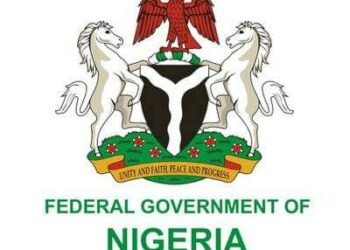The National Action on Sugar Reduction (NASR) has asked the Federal Government to further increase the sugar-sweetened beverage tax (SSB tax) and direct all revenue gained from such tax to curb Nigeria’s non-communicable diseases crisis.
The coalition, which has more than fifteen leading members including the Nigeria Cancer Society, Diabetes Association of Nigeria, Nigeria Medical Association, and Nutrition Society of Nigeria, among others made its demand through a technical position paper presented to the Presidential Fiscal Policy and Tax Reform committee recently during the Gatefield Health Summit at the Transcorp Hilton, Abuja.
The summit was themed: “Taxing Sugary Drinks and other Fiscal Policies for Healthcare taxing sugary drinks”, and was organised by a leading advocacy group Gatefield Impact in collaboration with the World Bank.
Presenting the technical position paper of the NASR, the President of the Nigerian Cancer Society, Dr. Alhassan Umar, explained that Nigeria has a health emergency as a result of our overconsumption of sugary drinks.
“11.2 million Nigerians or 1 in 17 adults are living with type 2 diabetes and more than 1 in 5 Nigerians are overweight and have abdominal obesity, which is an often overlooked diabetes risk factor. Between 2007 and 2021, Nigeria recorded a growth in per-capita soft drink sales from 9 ml to 14ml.
“The direct and indirect costs of obesity, type 2 diabetes and other NCDs are staggering. Beyond the prohibitive costs of treatment for individuals, NCDs have a broader economic effect, including a decline in economic productivity, attributed to the reduced ability of people suffering from these diseases to work.
“The national direct cost of diabetes to Nigeria is estimated at USD 3.5 to USD 4.5 billion per annum or around NGN300,000 per patient. The burden of treating diabetes is more than Nigeria’s entire health budget!”Researchers and health experts have long expressed concerns over the negative impact of sugary beverages on public health.
“High sugar consumption has been linked to an increased risk of obesity, diabetes, and other chronic diseases, which pose significant challenges to the healthcare system. The World Bank Global SSB Tax database reports that SSB taxes have been implemented effectively in more than 100 countries. Evidence has shown that contrary to the beverage industry narrative, there have been no economic or job losses as a result of the SSB taxes.
“Instead, SSB taxes have been proven to do public good including generating strategic and critical revenue for investments in health, nutrition, and other social services, as well as discouraging the consumption of sugary drinks and promoting the consumption of healthier alternatives”, the group said.
Supporting the health groups’ demands, the Special Adviser to the President on Health, Dr. Salma Anas highlighted the health implications of SSBs and the importance of fiscal policy measures to safeguard public health
“This administration’s priority in regards to health are: Health Financing. The President has said he is going to increase allocation for health, starting with ten percent of our budget for health. Diabetes and Cancer treatment is very expensive, Many Nigerians cannot afford this and this tax will help reduce that. That is why we need officials from finance and internal revenue services to have this discussion with us”, she said.




